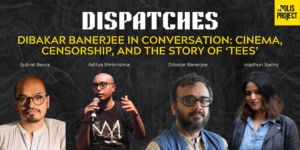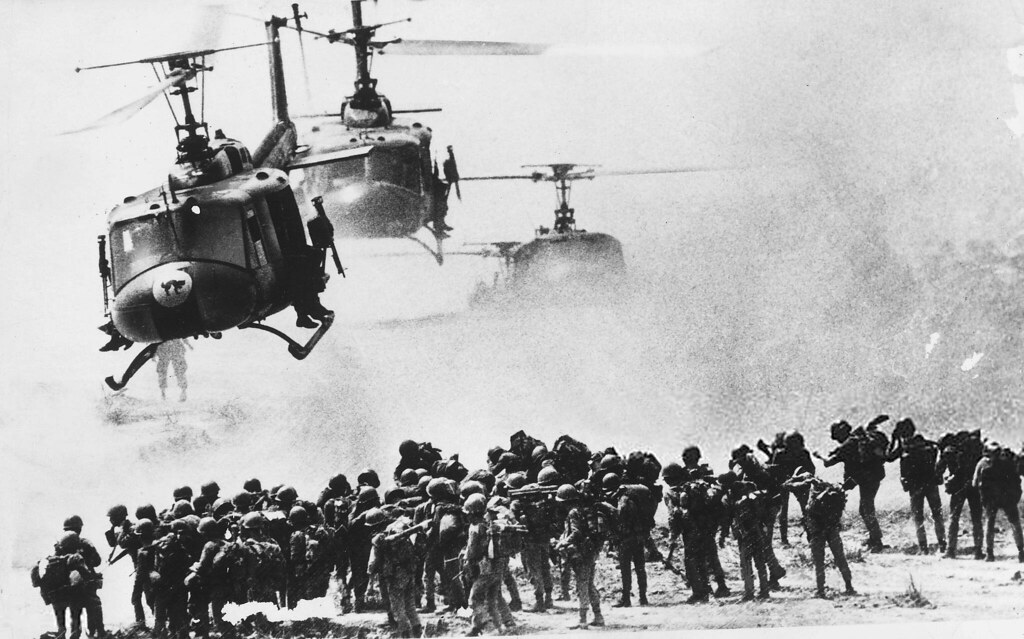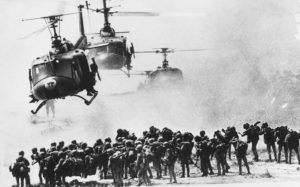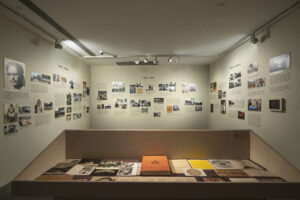


This essay has been long in the making. I started writing before the fall of Kabul to the Taliban on 15 August 2021, set it aside as it felt a reflection out of place and then decided to pick it up again after unexpected disclosures on the personal background of an Indian anthropologist writing about Indian controlled Kashmir sparked a debate on ethics, trust and positionality.
Starting from the premise that researchers inevitably occupy a position of power, in what follows, I look at the role of the researcher from two different, but interconnected points of view: the narcissism that often transforms the research about conflict into a self-referential mirroring of an inflated self and the wider implications of what we, as researchers, are prepared to sacrifice to obtain what we are after. Seemingly different, these approaches are both crafty as they pretend innocence and appropriate the language of “radical” positionality while in fact are disguised strategies of self-promotion.
Historically, both attitudes have created profound and long-term repercussions on the kind of scholarship that can be produced in and about contexts of conflict, thus furthering the marginalization and vacuum of knowledge that often plagues these contexts. When written in solidarity and motivated by intellectual honesty, scholarship – whether produced by insiders or outsiders to the conflict – has the duty to speak truth to power; a breach of trust therefore produces the unintended consequence of silencing important stories and reinforcing the status quo.
*
Writing, thinking, researching about conflict is taxing. It takes an emotional toll that sometimes turns into physical pain. In a recent conversation, Suchitra Vijayan described writing about conflict as being conveyors of other people’s pains and traumas. As such, we facilitate the circulation of certain experiences that may otherwise remain unheard. In order to care, we have to make sure that we listen carefully and deeply; that we hold those stories, carry them and let them speak for themselves.
I am not upholding the myth of neutrality here. When we tell a story, it is us telling a story; our presence is undeniable and changes the balance. I am using a collective pronoun even though I am aware that some nuances will be lost and that many will identify and agree while others will be angry or offended.
The point here is how we say what we say – and why.
Being vehicles of other people’s stories and pains requires empathy, intellectual honesty and moral integrity. It is not about being invisible – we never are – it is about taking a step aside, it is about making sure that our presence does not cast too dark a shadow that ends up covering those whose stories we are striving to convey.
Too often while claiming of bearing witness, journalists and researchers turn the stories they tell onto themselves. Writing about conflict becomes about us working on conflict rather than the actual subjects of our stories, rather than the actual victims of those conflicts. When we work in conflict zones it is because we chose to do so – obfuscating this is dishonest as it does not acknowledge the fact that we can leave: we can pack and go if things get too much. This is not the same for a person whose country is razed to the ground, who has no choice, who has no way out. This is not the same for those who thought their only choice was to try and leave Afghanistan by holding on to a flying plane and then falling from the sky.
If war gets too much, for us there’s always Rest & Recuperation while for those we write about there is no escape.
On 16 July 2021, Indian photojournalist Danish Siddiqui was killed in Afghanistan by the Taliban. As details emerged, what was initially reported as a death on the job while he was embedded with the Afghan Army in Spin Boldak in the southern province of Kandahar, turned out to be a brutal and gruesome execution. Siddiqui was the first foreign journalist to be killed in the heightened violence that afflicted Afghanistan before the Taliban takeover.
The shock around his death was stunning and sent ripple effects across South Asia and beyond. In a conversation a few days later, Asim Rafiqui noted the scale of memorialization that took place around Siddiqui’s death. Along with public mourning and candle vigils, there was an incredible rush to claim proximity with the photojournalist-turned-hero. What had now been transformed into a collective performance of remembrance and martyrdom became also an occasion for many journalists to shift the focus to their own grief, their own loss vicariously making a death on the field about themselves.
Many of us have lost friends to gruesome wars across the world, some of us chose not to make their deaths about ourselves. Some of us chose to keep the memory of those we lost alive by continuing to remain alert and critique the structures of power, oppression and exploitation that allowed those very wars to exist.
At around the same time that Siddiqui was killed, the Afghanistan Independent Human Rights Commission (AIHRC) issued their yearly report on the impact of war on civilians in the country. Their data show that in 1,594 security incidents, 5,321 civilians were killed or injured in the first six months of 2021 – making it an increase by 80 percent in comparison to the same period of 2020. There was, however, no candle vigil to mark those 5,321 casualties, there was no claiming those deaths as one of our own.
The glamorization of individual instances of death – and this is not to take anything away from the tragedy of Siddiqui’s death and the enormity of the grief of his family – risks to distracts from the thousands of infinitely avoidable civilian casualties. Those that are called collateral damage. Those whose families do not even have a grave to honor. Those who do not want to have anything to do with war but are in the wrong place at the wrong time and do not have the luxury to leave this horror behind.
After the New York Times revealed that the drone strike that the Americans carried out a few days before the pullout from Afghanistan killed civilians instead of associates to the Islamic State, General McKenzie described the event as a tragic mistake. The count of tragic mistakes in remote rural corners of the country, however, is lost and there is no collective shame and mourning for those whose end accounts for collateral damage.
When we do our job, when we travel in a country in conflict, we are perfectly aware of the risks it entails. We choose it, we do it willingly – sometimes exhilarated by the adrenaline boost, sometimes looking away and pretending not to see the shadow of death. Whichever the inner drive, we do it because we want to. We chose to go – and we have the privilege to be able to leave, to flee, to nurse our inner wounds and hate our fears. When we manage to keep our shit together, we continue doing what we are doing for a long time. When things go sour, we move on and change job.
This is an immense privilege, one that goes far too often unacknowledged.
Turning the limelight onto ourselves, making every war about those of us who are there to tell the story may be a rewarding career path, but it is ethically questionable. Working with victims of injustice does not turn any of us into their spokesperson, it is not a career, it is not about how good we are for doing this, how brave we are, what courage we have. It is not trendy, not fashionable, not cool at all – even though, phrased in the right terms and with the right spin, it comes handy to hold courts over drinks, to charm impressionable girls or bed men in search for the exotic.
Granted – everyone does what they think it’s best, but it is surprising to see how rarely these egotistical manifestations are called out. And it is appalling that riding other people’s pain for self-gaining purposes is not exposed for what it is: calculation, opportunism, exploitation.
*
On 14 September 2021 an anonymous Twitter account called Settler Scholarship published a long thread questioning the decision of Saiba Varma, an Indian anthropologist who wrote a book on Indian controlled Kashmir, not to disclose important details about her personal background. The scholar, who wrote about trauma and mental health in Kashmir, is the daughter of a former high-ranking official of the Research and Analysis Wing (RAW), the intelligence and counter-terrorism agency of the Indian Government.
The infamous RAW is considered one of the main implementers of the Indian State’s settler colonial project in Kashmir, where its agents are both feared and despised. The affiliation with the agency carries therefore a very distinct political and ideological connotation. The association with RAW is not neutral and is very likely to trigger strong reactions (on either side of a spectrum ranging from admiration to disgust).
In this context, the questions that the Settler Scholarship account pose are legitimate and go straight to the heart of the matter: “Did the trauma patients in Kashmir know who they were talking to? Would they still have felt comfortable talking to her if they knew who her father was?” and “How to reconcile the fact that the father oversees the agencies that create trauma, while the daughter studies the effects?”
The Settler Scholarship account claims the right to remain anonymous for fear of retribution and backlash both within Kashmir and at the hands of RAW. However understandable, this choice is problematic when the main accusation to the scholar is lack of transparency and accountability: “The research & book raise problems re: positionality, methods, consent & especially honesty & transparency with vulnerable informants.” Here the accused has a name, the accusers do not. The accusers question whether the scholar should be allowed to continue her work in Kashmir in the future while there is no way to make them accountable for their work and positions. In this particular case, even though the chosen method may be questionable, the issues they raise remain important.
The thread took many by surprise. Before the debate started, the first thing was to verify whether the Settler Scholarship’s claims were accurate. They were. Then there were statements, counterstatements, accusations, disclaimers, (few) endorsements and many efforts to take distance from both the person and the work. Many accused the publisher not to have done their due diligence before putting out the book; some resorted to cancelling; others pointed that the shocked colleagues were only upset because they were not in the know, their egos bruised as they felt excluded or that they were otherwise jealous and behaving as gatekeepers.
As it often happens with important issues on social media, it all turned loud and nasty and self-serving and rude clamor ended up filling the air with snark, verbal abuses and offensive remarks. As the dust is slowly settling, however, it is worth taking time to reflect on what are the wider repercussions of an event like this. As a group of Kashmir scholars wrote in response to the news, this should be a moment of reckoning.
Stuart Hall reminds us that our positionality – the place where we speak from – defines what we say. Acknowledging one’s positionality means factoring into the picture our background, the power dynamics at play, our privilege. There is no neutrality in scholarship, neither there is objectivity or innocence in the knowledge we contribute to produce. Saiba Varma also acknowledges this in her book and in the Twitter thread she writes in response to Settler Scholarship: as an Indian there is no innocent way to engage with Kashmir – for that matter, there is in general no innocent way to engage with any conflict. She also adds that her position will be clear to those who will read the book.
I read the book long before this incident and I appreciated it. Getting to know about her background, however, confounded me and made me profoundly uncomfortable. In my case, reading the book did not make her position clear: as a reader I felt deceived, as a researcher with a long affiliation with Kashmir I felt angry and troubled.
As an academic, I keep wondering if withholding information is the same as hiding it and whether withholding information to make the interaction smoother and faster is culpable or just cynical. Also, as an afterthought, what would happen to the credibility of our sources if we happened to find out much later that they chose not to disclose potentially problematic details about themselves? Would we still have respect for them? Would we still trust and believe them? Would the credibility of our research still hold? But also, mutatis mutandis, do the same questions stand if applied to those who have the agency to write and draw conclusions rather than to those who are always written about?
Michael Busch recently pointed to something I did not think about, namely the noticeable absence from the debate of the role that academic research bodies may or may not have played in this. The American edition of Varma’s book is published by Duke University and it is the outcome of her research within an academic institution. Was the research ethics committee aware of her decision to withhold information about her father’s affiliations? Was she advised to do so to protect her safety?
This brings to the fore an important reflection on what is an academic prepared to sacrifice in order to conduct research: Does any research topic ever justify the tradeoff between honesty and safety? I don’t have any answer to this, only a long list of doubts.
The other question for which I don’t have an answer is whether the terms of the debate would change if we would ever come to know (how?) that, as Varma claims, her immediate interlocutors were aware of her background. In a situation of such a power imbalance where – if we follow the harsh definition of the Settler Scholarship’s account – the daughter studies the traumatic consequences of the actions perpetrated by the likes of her father, is there really any margin of choice for those who are asked to participate in the research? I wonder if an extremely vulnerable person, when asked to speak to the people who may represent or evoke those she fears, would really be able to say no. Would she think it’s in her power not to engage or would she fear further repercussions?
The sense of deceit that this story triggered is nurtured by a word that keeps coming back to my mind: extortion. When testimonies of pain and trauma are gathered from a non-fully transparent premise, I wonder if the act amounts to extortion. As a reader, what do I make of those intimate thoughts and experiences that people were willing to share and the researcher potentially obtained with an amount of deception? Have people been tricked into giving away something deep and intimate about themselves?
There is a paralyzing violence in these thoughts.
Working ethically in a context of conflict requires a great personal investment in time and in the willingness to build a dialogue and an exchange based on shared vulnerability. This, I believe, is the only way to acknowledge and account for the position of power that as researchers we carry with us. Time and engagement as vulnerable human beings are the basis of non-exploitative intellectual honesty, the foundations that allow for the construction of mutual trust.
In contexts of conflict, trust is one of the most valuable things to ask. Wars and occupation break societies and the fabric of solidarity that is meant to keep communities together is deeply strained by fear. Trust to an outsider is a big ask. Why would people open up to a stranger whose questions may put them in danger? What would the association with them tell about themselves? Would the State, the Police, the Army object to sharing any lived experience of war and occupation? And if so, would these agencies go after those who speak? The leap of faith that is required to speak up is enormous – as researchers sometimes we forget this.
The breach of trust that this episode may create towards the formless category of researchers or academics is potentially very dangerous for the scholarship about Kashmir.
The Indian Government is on a rampage against Kashmiris: intimidation is the norm, censorship is the status quo and brutal repression is the currency with which are rewarded those who dare to speak truth to power. While violence is the only language the Indian State speaks in Kashmir, the mouthpieces of the State propaganda never ceased to proclaim that Kashmir is happy. With journalists thrashed, threatened or in jail, the ghost of the single narrative is not a risk, but an actual fact.
The role and duty of honest scholars and researchers is to counter such narratives, to question abuses of power, to amplify voices that are sidelined, annihilated or muted by fear and intimidation. But honest scholars can only do their job if those whose story we want to amplify deem us trustworthy of the effort that sharing those stories require.
Writing in solidarity – as Varma claims she is doing – requires avoiding white lies, omissions, shortcuts and being prepared to acknowledge that people may not want to speak with us for what we may represent. Writing in solidarity means that trust can never be demanded or taken for granted but can only be built slowly with mutual commitment. Writing in solidarity means acknowledging and respecting the agency of those we interact with – not speaking for, but speaking along and only if our interlocutors want us to.





